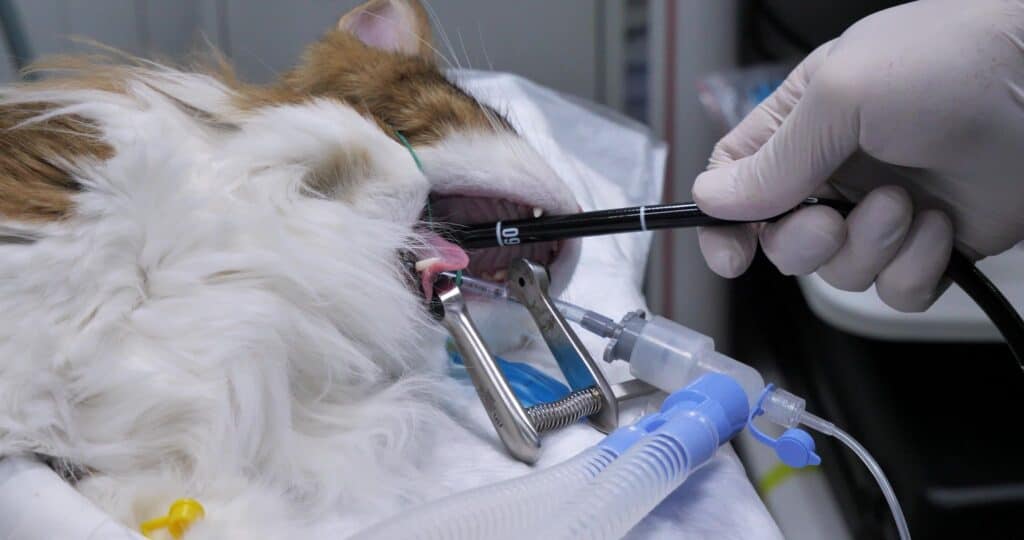Reasons Why Your Dog or Cat Needs An Endoscopy
Reasons Why Your Dog or Cat Needs An Endoscopy

If your veterinarian has scheduled an endoscopy, you might be wondering what it is or why your pet needs one. What does the procedure look for? How can it help your pup or kitty? The team at Parkside Animal Hospital has performed many endoscopies. We’d like to share the reasons why your veterinarian might recommend an endoscopy for your dog or cat.
What is an Endoscopy for Cats or Dogs?
An endoscopy is a procedure in which your veterinarian inserts an endoscope into your pet’s body to get a better look at the internal organs. The endoscope is usually a flexible tube with a camera attached. It allows a veterinarian to spot abnormal swelling, narrowing, inflammation, and foreign objects inside your dog or cat’s body.
There are several types of endoscopy procedures, including:
- Gastrointestinal endoscopy: studies the esophagus, duodenum, and stomach for signs of difficulty swallowing (dysphasia) and gastric disease
- Colonoscopy: examines the pet’s rectum and colon for signs of colon disease
- Urinary endoscopy: visualizes a pet’s urethra and bladder for signs of urinary tract infections and other urinary conditions
Even though an endoscopy is a helpful diagnostic tool, most conditions also require a biopsy for an accurate and definitive diagnosis. Thankfully, endoscopes are made to support biopsies. Your veterinarian can insert a biopsy instrument through the endoscope and remove a sample of tissue or cells for testing.
All dogs and cats go under anesthesia during an endoscopy. To reach your pet’s organs, the tube must go through sensitive areas like your pet’s rectum or mouth. Can you imagine trying to do that with a conscious pet? Neither can we. It’s safer for everyone if your pet is under anesthesia, and at Parkside Animal Hospital, we’ll monitor them every step of the way.
Why Does My Pet Need an Endoscopy?
Your veterinarian may order an endoscopy if your pet is showing signs of gastrointestinal distress, urinary problems, or bowel disease in dogs or cats. Endoscopies can also help detect some cancers in cats and dogs.
Common symptoms of gastrointestinal issues include vomiting, diarrhea, poor appetite, or weight loss. Bowel disease in cats or dogs can include symptoms like bloody feces, lethargy, and vomiting. Conditions like inflammatory bowel disease (IBD) in dogs or cats can cause chronic vomiting or diarrhea—or both. Urinary problems are often marked by straining or painful urination.
If your dog or cat has any of these symptoms, an endoscopy can help the veterinarian figure out what’s going on. And once you have a diagnosis, your veterinarian can map out a treatment plan for Kitty or Fido.
Pet Endoscopies at Parkside Animal Hospital
Our skilled veterinarians can perform endoscopies to help diagnose health problems in cats and dogs. As a certified Cat Friendly Practice®, we take pride in providing a comfortable, stress-free environment for cats and dogs alike.
If you’d like to learn more about endoscopy procedures, don’t hesitate to give us a call at (705) 223‑3404. We’re here to answer your questions and help you navigate your pet’s health journey.
